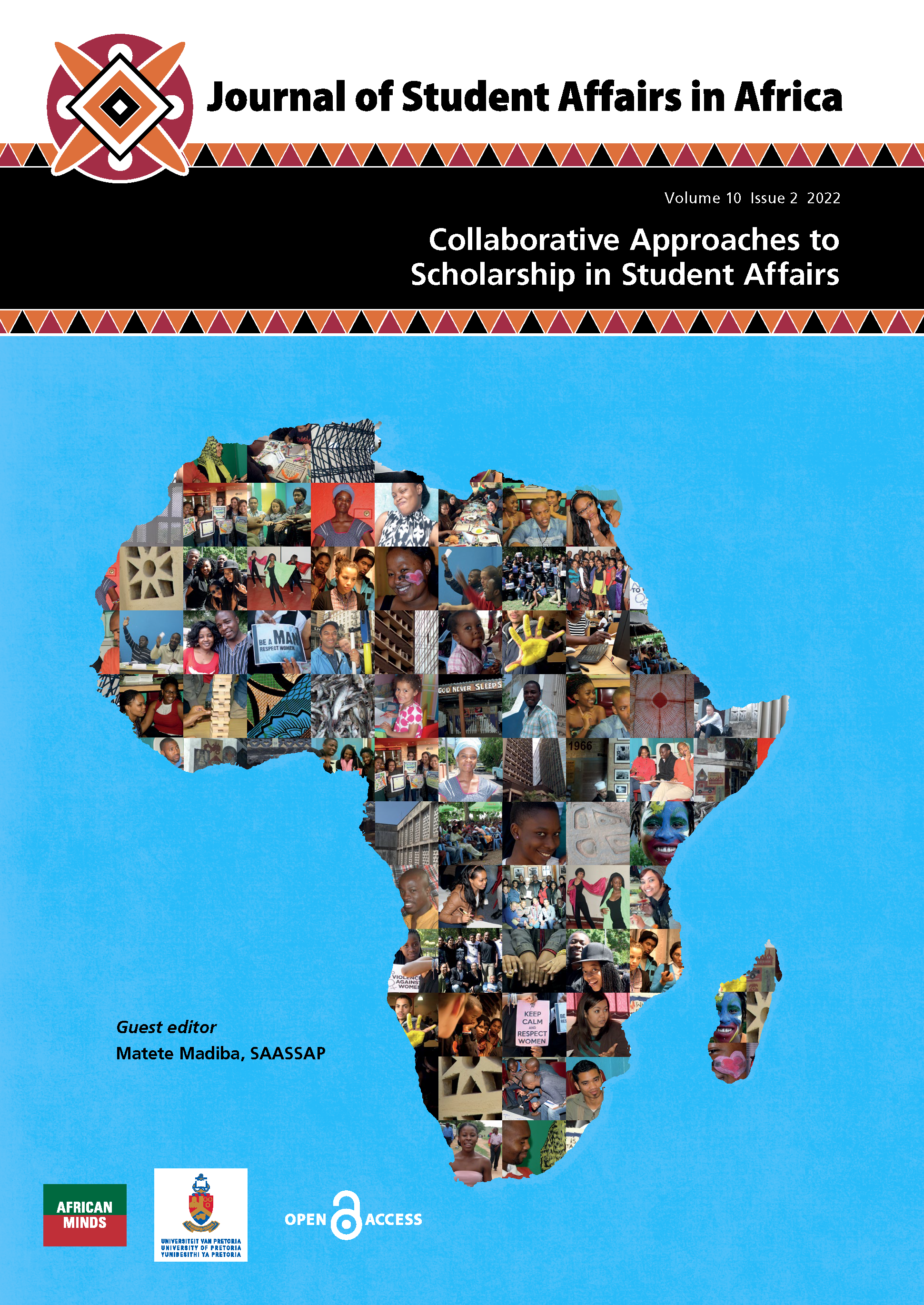Thinking with Nancy Fraser in understanding the impact of online learning and support during the Covid19 pandemic.
DOI:
https://doi.org/10.24085/jsaa.v10i2.4365Keywords:
social justice, participatory parity, academic and psycho-social supportAbstract
The Covid-19 pandemic has changed the face of Higher Education Institutions (HEI) in profound ways. Since 2020 HEI’s have been forced to think creatively and quickly about how to respond to arising challenges of completing the academic year and ensuring throughput and retention of students. Historically Disadvantaged Institutions (HDIs) have been hard hit in respect of resources and the under-preparedness of the student cohort who are attracted to HDIs to take on the challenge of online learning. This article uses mixed methods approach, which includes survey data to measure service delivery and an auto-ethnographic approach using the observations and reflections of the author to discuss the impact of online learning and support during the Covid-19 pandemic. Utilizing Nancy Fraser’s model of social justice, which focuses on the concept of participatory parity the paper will using the economic and cultural dimension provide an understanding of the constraints and enablements that impacted student’s ability to access online learning and support.
Downloads
Published
Issue
Section
License
Copyright (c) 2022 Faeza Khan

This work is licensed under a Creative Commons Attribution-NonCommercial-ShareAlike 4.0 International License.
Authors who publish with this journal agree to the following terms:
Authors retain copyright and grant the journal right of first publication with the work simultaneously licensed under the Creative Commons Attribution Share-alike 4.0 International License that allows others to share the work with an acknowledgement of the work's authorship and initial publication in this journal.
Authors are able to enter into separate, additional contractual arrangements for the non-exclusive distribution of the journal's published version of the work (e.g., post it to an institutional repository or publish it in a book), with an acknowledgement of its initial publication in this journal.
Authors are permitted and encouraged to post their work online (e.g., in institutional repositories or on their website) prior to and during the submission process, as it can lead to productive exchanges, as well as earlier and greater citation of published work (See: The Effect of Open Access).


